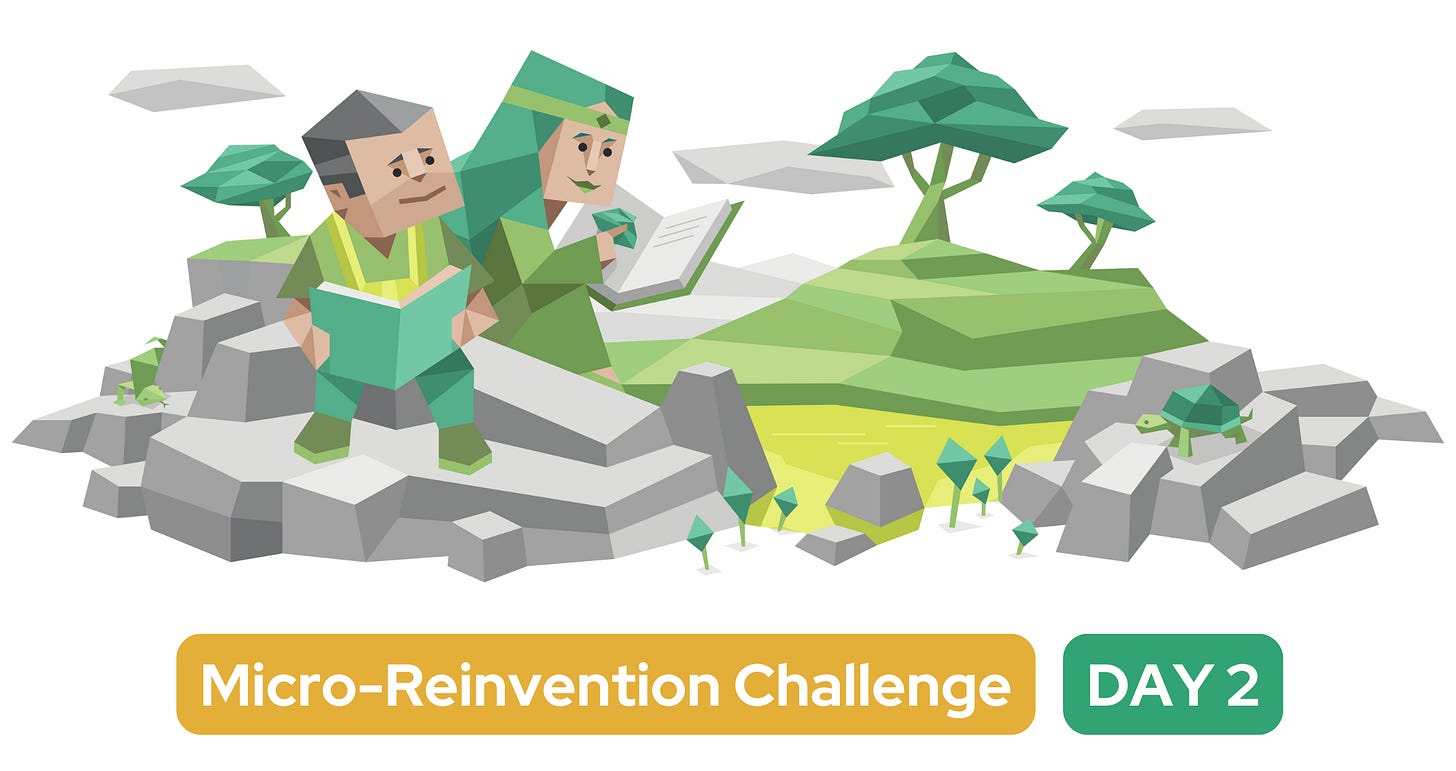The (Very Large) Power of the (Very Tiny) Experiment
How to Nudge Yourself Toward One Small Shift That Sticks: Day 2 of 3 of the Micro-Reinvention Challenge
Welcome to Day 2 of the Micro-Reinvention Challenge!
Yesterday, you identified your “stale spot” – the area of your life that feels most out of sync. (Missed it? Catch up here.) Today, we’re turning that insight into action. But we’re not going big. We’re going tiny…very tiny.
As a reminder, here’s where you are in the challenge:
Day 2: Nudge Yourself Toward One Small Shift (You Are Here)
Day 3: Name What That Shift Reveals About What You Want
Small > Big Changes
You know that Sunday night feeling when you decide to completely overhaul your life starting Monday morning? Your brain rarely cooperates with those grand plans – and there’s a reason behind that.
The author of the book Tiny Habits, B.J. Fogg found that behavior change happens when three elements align – motivation, ability, and prompt.
Motivation is your desire to do the behavior.
Ability is how easy the behavior is to do.
And prompt is the cue or trigger that reminds you to act.
His studies showed that big changes require high motivation to sustain, but motivation naturally fluctuates. When your motivation dips (and it will), the behavior fails.
But tiny experiments? They need almost zero motivation to maintain. Fogg’s research found that small actions succeed because they’re so easy they sit above what he calls the “action line” – the point where your ability to do the behavior is high enough that you can succeed even with low motivation.
His studies also showed that anchoring new behaviors to existing routines (like “after I pour my coffee, I’ll read one page of my book”) taps into established neural patterns.
Most importantly, he discovered that celebrating tiny successes – even just saying “I did it!” – creates positive emotions that literally wire the new behavior into your brain.
So how can you put all of this to work for you? We’ll get into that next. 👇
Keep reading with a 7-day free trial
Subscribe to Grow with 16Personalities to keep reading this post and get 7 days of free access to the full post archives.



